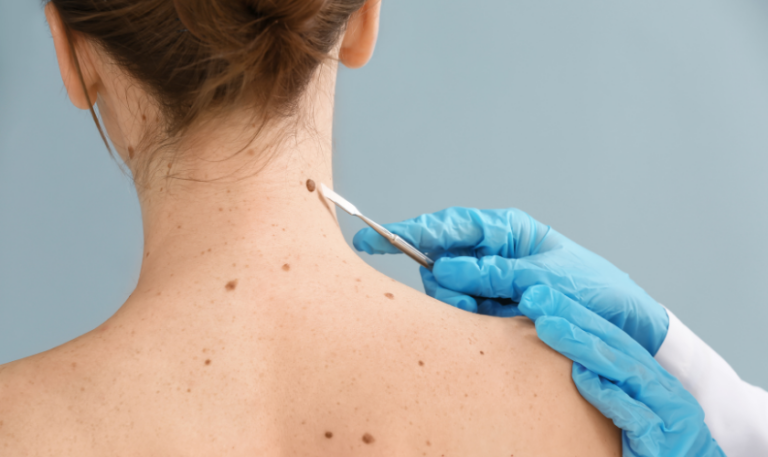Skin conditions can have far-reaching effects beyond physical discomfort, profoundly impacting emotional well-being and mental health. In this exploration of dermatology and mental health, we delve into the intricate connection between skin conditions and emotional wellness, shedding light on the challenges faced by individuals and strategies for holistic care.
Understanding the Link: How Dermatology Affects Mental Health
Skin conditions, ranging from acne and eczema to psoriasis and rosacea, can trigger a spectrum of emotional responses, including anxiety, depression, and social withdrawal. The visible nature of skin disorders often leads to feelings of self-consciousness, embarrassment, and low self-esteem, affecting relationships, work performance, and overall quality of life.
Dermatologists recognize the profound impact of skin conditions on mental health and advocate for integrated approaches to care that address both the physical and emotional aspects of dermatological disorders. By acknowledging the psychological toll of skin conditions, healthcare providers can offer more comprehensive support to patients.
The Emotional Toll of Acne: Navigating the Complexities
Acne, one of the most common dermatological concerns, can exert a significant emotional toll on individuals of all ages. Beyond physical symptoms, such as inflammation and scarring, acne can trigger feelings of shame, isolation, and poor body image. Adolescents, in particular, may experience heightened distress due to the social pressures associated with acne during a vulnerable developmental stage.
Dermatologists emphasize the importance of addressing not only the physical manifestations of acne but also the psychological impact. By providing compassionate care, tailored treatment plans, and supportive resources, dermatologists can help individuals navigate the emotional complexities of acne and regain confidence in their appearance.
Eczema and Mental Health: Breaking the Itch-Scratch Cycle
Eczema, characterized by inflamed, itchy skin, can take a significant toll on mental health, exacerbating stress, anxiety, and sleep disturbances. The relentless cycle of itching and scratching can disrupt daily functioning, impairing concentration, productivity, and overall well-being. Moreover, the visible nature of eczema lesions can lead to feelings of self-consciousness and social withdrawal.
Dermatologists employ a multifaceted approach to eczema management, combining skincare interventions with psychological support. Strategies such as stress management techniques, behavioral therapy, and relaxation exercises can help break the itch-scratch cycle and improve overall mental health outcomes for individuals with eczema.
Psoriasis and the Psychological Burden: Addressing the Stigma
Psoriasis, characterized by red, scaly patches of skin, can carry a heavy psychological burden due to its chronic nature and unpredictable flare-ups. Individuals with psoriasis may experience heightened levels of stress, anxiety, and depression, exacerbated by the stigma surrounding visible skin conditions. Negative perceptions from others can further compound feelings of shame and isolation.
Dermatologists play a crucial role in supporting individuals with psoriasis by providing personalized treatment plans, psychosocial interventions, and access to support groups. By addressing both the physical symptoms and emotional impact of psoriasis, dermatologists empower patients to manage their condition effectively and improve their quality of life.
Rosacea: Beyond Skin Deep
Rosacea, characterized by facial redness, flushing, and visible blood vessels, can have significant psychosocial implications, affecting self-esteem, body image, and social interactions. Individuals with rosacea may experience embarrassment, frustration, and anxiety due to the visible nature of the condition and misconceptions about its cause.
Dermatologists approach rosacea management with sensitivity and empathy, offering tailored treatment options and lifestyle recommendations to alleviate symptoms and minimize emotional distress. By addressing the emotional impact of rosacea alongside its physical manifestations, dermatologists support holistic healing and emotional well-being.
Holistic Care Approaches: Integrating Dermatology and Mental Health
Incorporating mental health support into dermatological care is essential for addressing the complex emotional needs of individuals with skin conditions. Dermatologists collaborate with mental health professionals, including psychologists, psychiatrists, and counselors, to offer comprehensive, integrated care that addresses both the physical and emotional aspects of dermatological disorders.
By adopting a holistic approach to care, dermatologists can empower patients to manage their skin conditions effectively while fostering resilience, self-compassion, and emotional well-being. Through education, advocacy, and compassionate support, dermatologists play a pivotal role in promoting mental health awareness and reducing the stigma associated with skin conditions.
Dermatology and mental health are intricately intertwined, with skin conditions exerting a profound emotional impact on individuals’ well-being. By recognizing the psychological toll of dermatological disorders and adopting integrated approaches to care, dermatologists can support holistic healing and enhance the quality of life for patients.
For compassionate, comprehensive dermatological care that prioritizes mental health, individuals can turn to dermatologists who are committed to addressing both the physical and emotional aspects of skin conditions.




